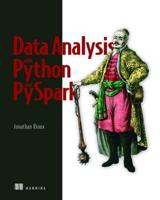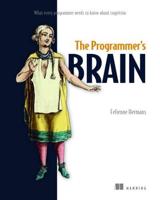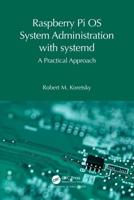Publisher's Synopsis
A Lazy Programmer is a person that believes that laziness is a virtue of a great programmer. Larry Wall, the creator of the Perl Programming language, explicitly stated this and a small cult of laziness has emerged around this issue. This controversy arises within every programming team and for every software developer at some point in his or her career. Which side of the debate do you take? Is there a difference between "Good Lazy" techniques and "Bad Lazy" techniques? How do such actions affect your team and the overall project?
How to Win the Debate:This book will examine this controversial issue from all sides - the good (or pro-lazy position), the bad (or con-lazy position), and the ugly (or the ramifications of not knowing the difference).
After reading it you will understand how lazy programmers think and act. You will have enough information and insight to either join them or fight them. The book covers and demonstrates each technique with programming examples. What you'll learn:
* The techniques of "Good Lazy" programmers like lazy initialization, labor-saving scripts, D.R.Y., and much more.
* The techniques of "Bad Lazy" programmers like brute-force programming, code smells, technical debt and much more.
* The difference between "active" laziness and "passive" laziness.
* How to properly write unit tests to cover edge cases and corner cases.
* The ugly ramifications of unchecked bad habits like the Big Ball of Mud, losing architectural cohesion and "death by a thousand cuts". Who should read this book:
* If you are a software developer, this book will help you improve your coding practices, your professionalism, and your team.
* If you are a team leader, this book will help you manage lazy programmers and steer them away from the techniques of "bad laziness".
* If you are a program manager, this book will improve your hiring practices, help you understand your developers better, and enhance your training programs! About the Author:
Michael C. Daconta is the author/co-author of 14 books. He authored one of the first books on the Java Programming Language that PC Magazine called a "must read". His other technical books are on C, C++, Java Pitfalls, XML, the Semantic Web, Metadata management, and Cloud computing. He is also the inventor of two patents for electronic mortgages. After 9/11, he served as the Metadata Program Manager for the Department of Homeland Security as a senior Government Official. He has received numerous awards for his work on the National Information Exchange Model (NIEM), and the Federal Enterprise Architecture (FEA) Data Reference Model. He earned his Masters Degree in Computer Science from Nova Southeastern University and his Bachelors Degree in Computer Science from New York University (NYU). He has practiced as a Software Engineering Professional for 32 years as: Programmer, Team Lead, Systems Architect, Chief Scientist, Chief Technical Officer and Vice President. Mr. Daconta has also authored hundreds of articles on the IT industry including the influential article, "Microsoft: The Tonya Harding of Technology". He wrote a regular "Reality Check" column for Government Computer News (GCN) and numerous articles for JavaWorld.









